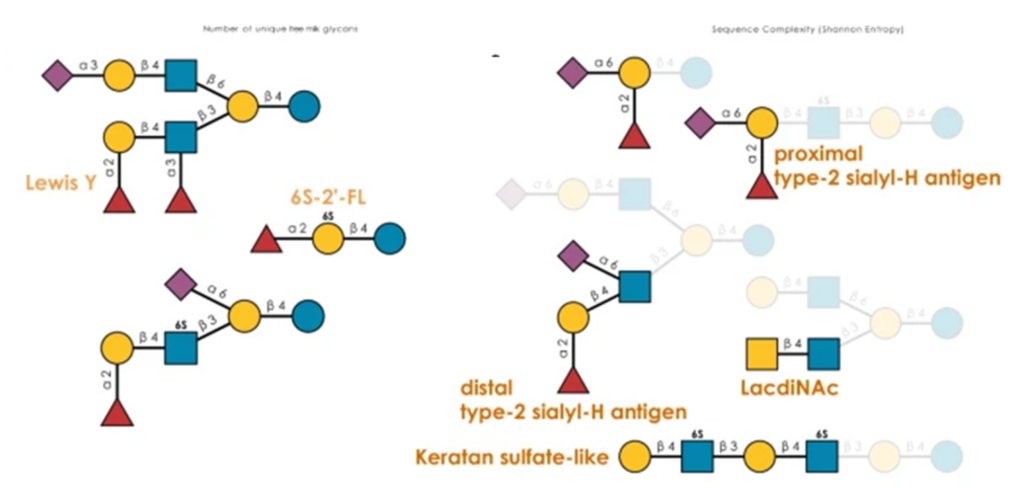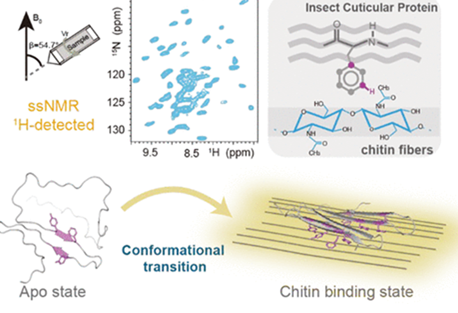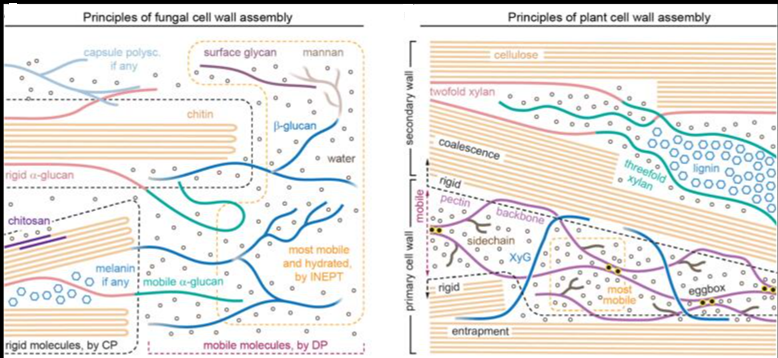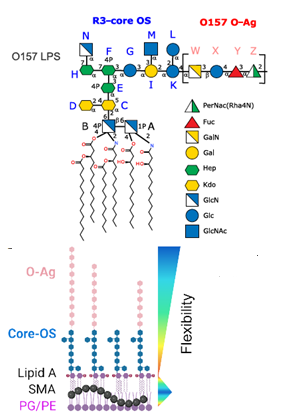Bacterial biofilms are a prevalent multicellular life form in which individual members can undergo significant functional differentiation and are typically embedded in a complex extracellular matrix of proteinaceous fimbriae, extracellular DNA, and exopolysaccharides (EPS). Bacteria have evolved at least four major mechanisms for EPS biosynthesis, of which the synthase-dependent systems for bacterial cellulose secretion (Bcs) represent not only key biofilm determinants in a wide array of environmental and host-associated microbes, but also an important model system for the studies of processive glycan polymerization, cyclic diguanylate (c-di-GMP)-dependent synthase regulation, and biotechnological polymer applications. The secreted cellulosic chains can be decorated with additional chemical groups or can pack with various degrees of crystallinity depending on dedicated enzymatic complexes and/ or cytoskeletal scaffolds.
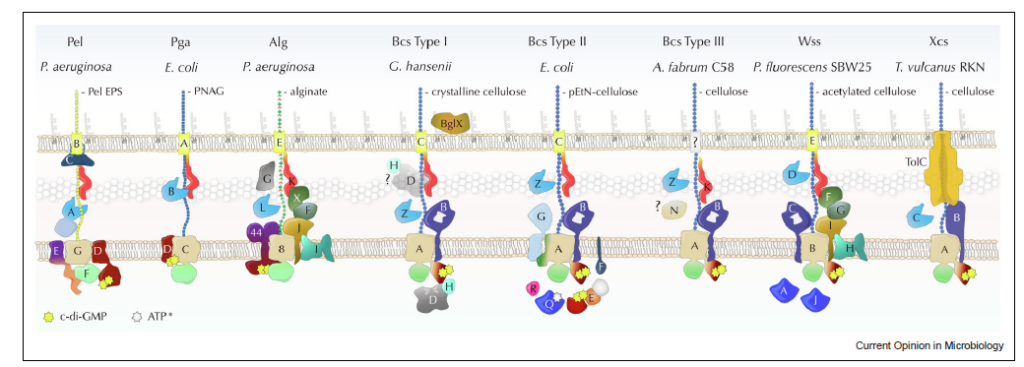
The author reviews recent progress in our understanding of synthase-dependent EPS biogenesis with a focus on common and idiosyncratic molecular mechanisms across diverse cellulose secretion systems

